Know 20 Important Cloud Computing Terms that is must for every Developer
Cloud computing has revolutionized the way businesses operate, allowing for greater flexibility, scalability, and agility. As a developer, it's essential to have a solid understanding of cloud computing concepts and terminology to effectively leverage this technology. Here are 20 important cloud computing terms that every developer should know:
![[object Object]](https://clipl-web1.sgp1.cdn.digitaloceanspaces.com/images/clu84te6u004d4irz9rcbe88h.png)
Cloud Computing:
The practice of delivering computing services, including servers, storage, databases, networking, software, analytics, and intelligence, over the internet to offer faster innovation, flexible resources, and economies of scale.
Infrastructure as a Service (IaaS):
A cloud computing model that provides virtualized computing resources such as servers, storage, and networking to users on a pay-as-you-go basis.
Platform as a Service (PaaS):
A cloud computing model that offers a platform for developers to build, deploy, and manage applications without worrying about the underlying infrastructure.
Software as a Service (SaaS):
A cloud computing model where users can access and use software applications over the internet instead of installing them on their local computers.
Virtualization:
The process of creating a virtual (rather than actual) version of something, such as a server, storage device, or network resource.
![[object Object]](https://clipl-web1.sgp1.cdn.digitaloceanspaces.com/images/clu84y5b7004f4irz3avjea71.png)
Containers:
Lightweight, isolated, and portable environments that package an application and its dependencies together, allowing for easy deployment and scaling.
Microservices:
An architectural style where an application is composed of small, independently deployable services that communicate with each other through APIs.
Scalability:
The ability of a system to handle increased or decreased demand by adding or removing resources as needed.
Elasticity:
The ability of a system to scale up or down automatically in response to changes in demand.
Resiliency:
The ability of a system to continue operating in the face of failures or disruptions.
High Availability:
The ability of a system to be accessible and functional at all times, even in the event of failures or disruptions.
![[object Object]](https://clipl-web1.sgp1.cdn.digitaloceanspaces.com/images/clu8517g6004h4irz8vks2iup.png)
Fault Tolerance:
The ability of a system to continue operating even if one or more of its components fail.
Load Balancing:
The process of distributing traffic across multiple servers or resources to optimize performance and avoid overloading a single resource.
Cloud Security:
The measures taken to protect cloud data, infrastructure, applications, and services from unauthorized access, use, disclosure, destruction, modification, or disruption.
Compliance:
The ability of a cloud service provider to meet specific regulations, standards, or industry-specific requirements.
Cloud Migration:
The process of moving data, applications, or other IT resources from an on-premises environment to a cloud environment.
![[object Object]](https://clipl-web1.sgp1.cdn.digitaloceanspaces.com/images/clu852wiy004j4irz58fedxo0.png)
Hybrid Cloud:
A cloud computing environment that combines on-premises infrastructure with public cloud services to provide greater flexibility and control.
Multi-Cloud:
A cloud computing environment that utilizes multiple cloud providers or services to achieve greater reliability, redundancy, and cost-effectiveness.
Serverless Computing:
A cloud computing model where developers can build and run applications without managing servers or infrastructure.
Cloud Functions:
Small, event-driven, stateless functions that can be triggered by specific events or conditions in the cloud.
Conclusion:
By understanding these key cloud computing terms, developers can effectively leverage the power of cloud technology to build innovative applications, improve efficiency, and drive business growth. With a solid grasp of these concepts, developers can unlock the full potential of cloud computing and stay at the forefront of technological advancements.
























